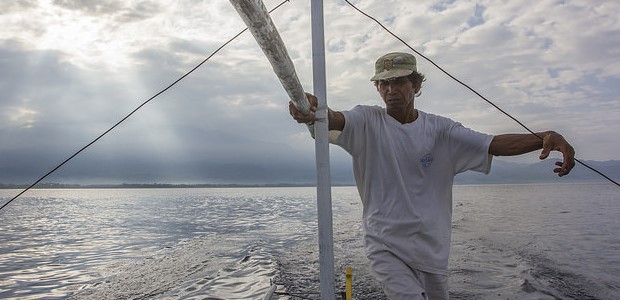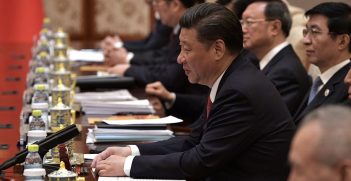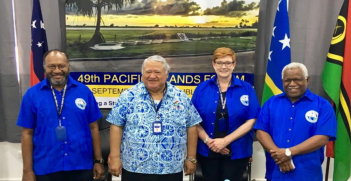New Dynamic for South China Sea Fisheries

The politicisation of the fishing industry has become central to the maritime dispute between China and the Philippines but the new Philippine president-elect will potentially change this dynamic.
China’s position on the South China Sea dispute has recently emphasised the role of the fishing industry. The government has provided military training and financial support to a fishing militia using fishers as a means to advance its maritime claims. In a visit to China’s southernmost province of Hainan in 2013, President Xi Jinping gave these fishers official encouragement from the very top.
Philippine fishers now regularly contend with harassment such as water cannons from Chinese vessels seriously impacting their ability to catch fish. Fishers from Palawan and Mindoro Islands where I have worked in the Western Philippines now tell me how they avoid certain “hot” fishing grounds in the South China Sea out of fear of confrontation with the Chinese. Similarly, fishers from the town of Masinloc in Luzon Island located near the disputed Scarborough Shoal are turning to other livelihoods as the fishing industry suffers. These developments have been taking place in the shadow of the decision awaited on China’s maritime claims by the Permanent Court of Arbitration.
In previous years, Philippine fishers would tell me of how the South China Sea was a melting pot of different nationalities. They would see Chinese, Vietnamese, Thai and Taiwanese fishers while out at sea and yet witness no animosity. Instead, they would meet up, taste each other’s food and communicate about fishing conditions through sign language. The South China Sea was regarded as fundamentally different to the inshore waters of the Philippines as nobody “owned it” and it was open to all. Similarly, scientists from Hainan who I have spoken to during my research on Chinese fisheries describe how the vast majority of Hainanese fishers simply want to get on with their lives without being affected by government policies concerning the dispute. Fishers in the region have enough problems in their life, ranging from exceptionally difficult working conditions to economic poverty to declining fish catches, and do not need the added stresses of military confrontation.
The recent election of maverick politician Rodrigo Duterte to the presidency of the Philippines adds a potentially unpredictable element into this situation. While at one point during his campaign he stated that he would personally ride a jet ski out to the Spratly Islands and plant a Philippine flag there, recent indications are that he intends to adopt a more cooperative approach with China. After a recent meeting with President-elect Duterte, Chinese ambassador Zhao Jianhua spoke of their “very good conversation” and his confidence that the bilateral relationship would improve.
If China and the Philippines are to work together, the fisheries of the South China Sea urgently need attention. A recent high-profile report from the University of British Columbia highlighted both the immense value of these fisheries, the extent to which they have been heavily overfished and the vital need for countries of the region to cooperate to improve fisheries management. Working together to begin managing these fisheries would benefit the lives of fishers in the long term far more than the damaging status quo.
Fishers and the fisheries resources of the South China Sea will continue to be politicised pawns in a wider geopolitical contest, but with the arrival of President-elect Duterte there is now the opportunity for both countries to take advantage of a new dynamic.
Dr Michael Fabinyi is a senior research fellow at the University of Technology Sydney. This article is published under a Creative Commons Licence and may be republished with attribution.





